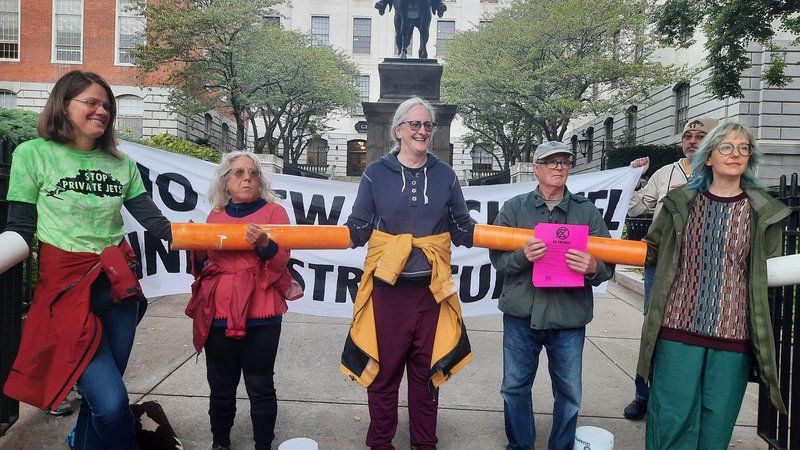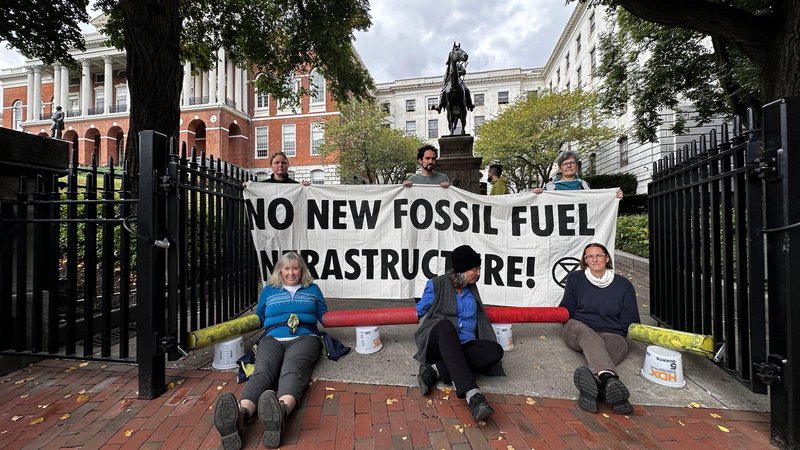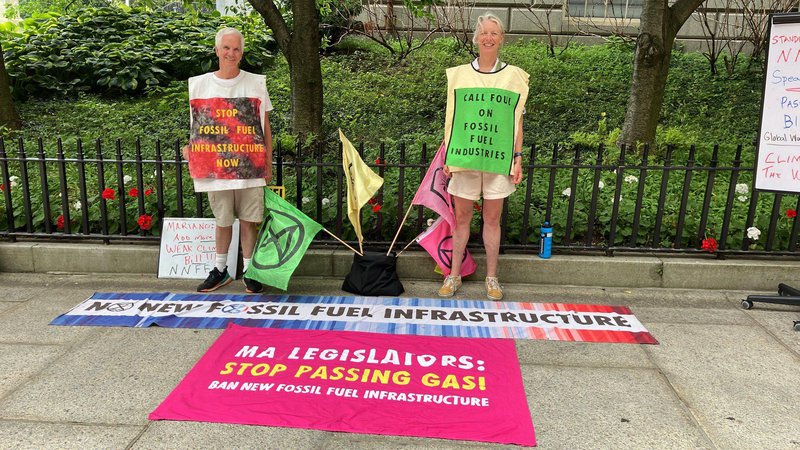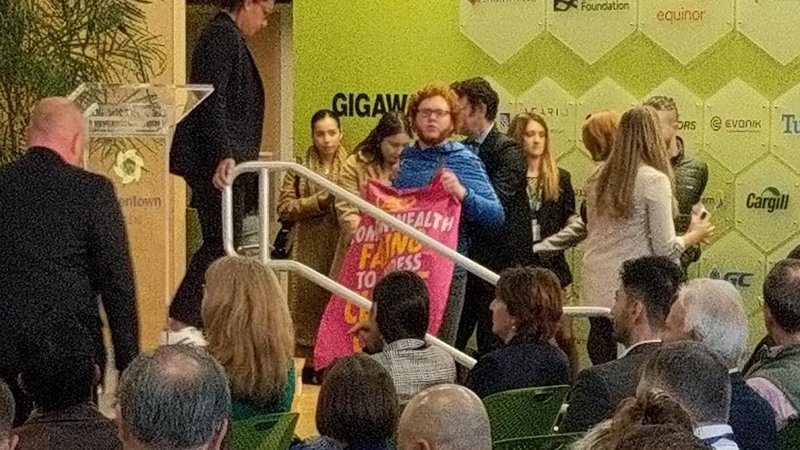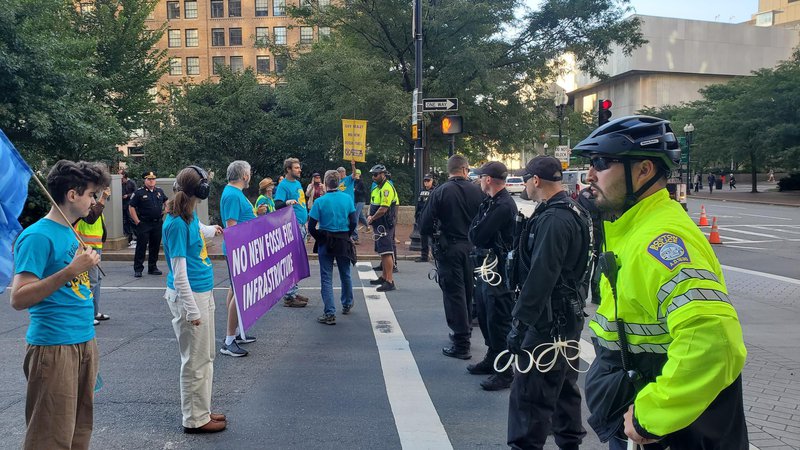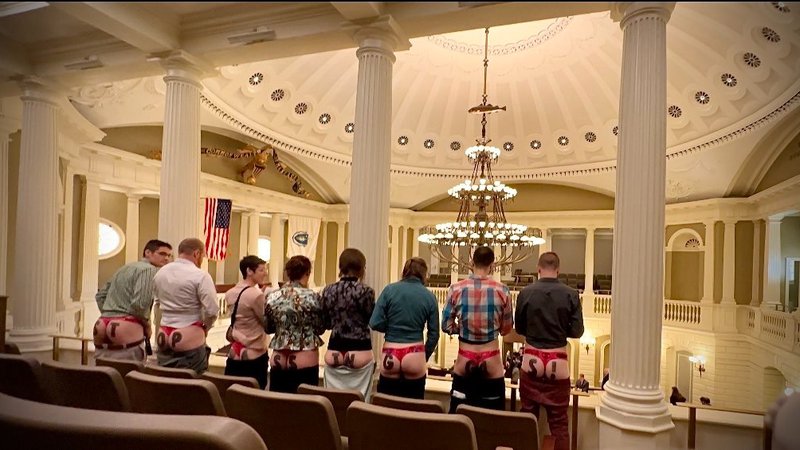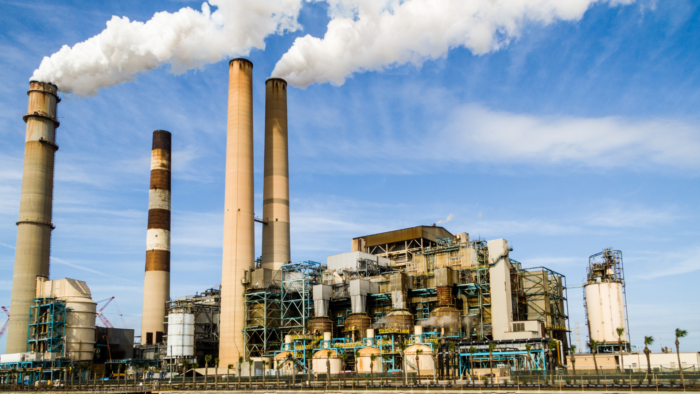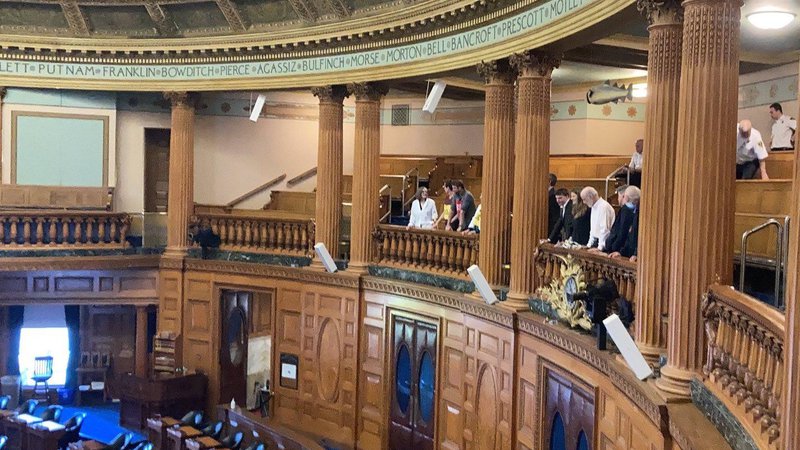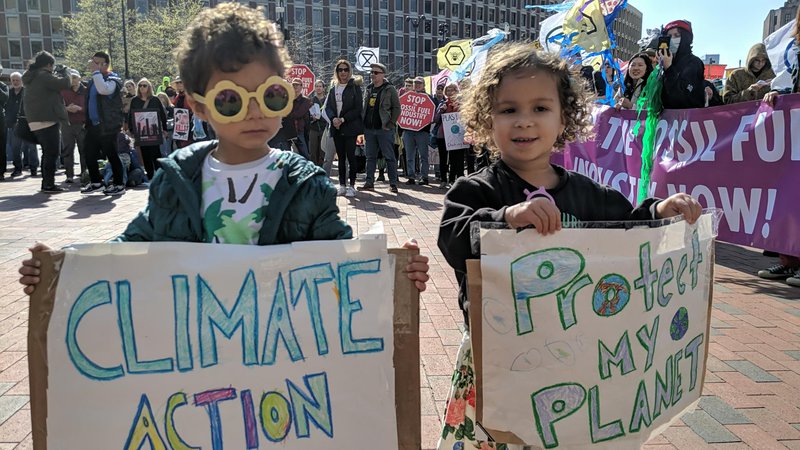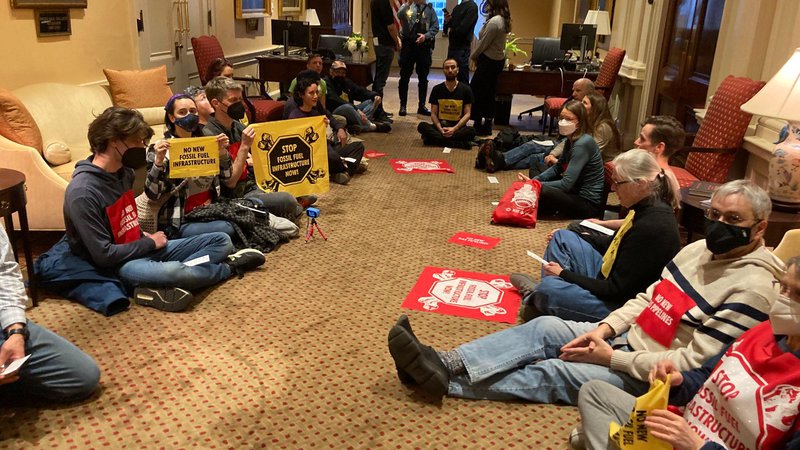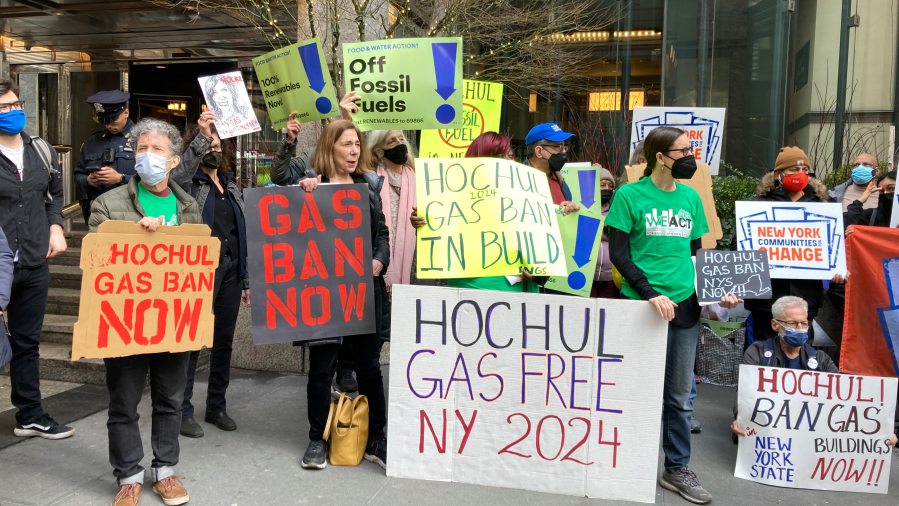
NY State Moving to Ban Natural Gas in New Construction
What does NY State's potential ban on natural gas in new construction mean for Massachusetts?
On Friday April 28, the New York Times reported that New York State might ban natural gas in new construction. According to Katy Zielinski, a spokeswoman for Governor Kathy Hochul's office, “The new law will not have any loopholes that will undermine the intent of this measure. There will not be any option for municipalities to opt out.” State Lawmakers are expected to vote on the deal next week.
We shouldn't celebrate prematurely, but this could be a step toward our demand of No New Fossil Fuel Infrastructure, and could set precedent for a similar initiative in Massachusetts. Despite the weak Municipal Fossil Fuel Free Building Construction and Renovation Demonstration Project signed into law by Governor Baker in August 2022, our state is still lagging in the inevitable transition away from fossil fuels.
Our current governor, Maura Healey, has a sticky history on the subject of natural gas. When Healey served as the state's attorney general, Brookline tried to ban gas in most new construction, prompting fierce blowback from real estate developers and the gas industry. Predictably, Healey sided with the fossil fuel industry, and ruled Brookline’s ban illegal.
Less than two years later, Healey's gubernatorial trail was littered with promises to support green energy and limit fossil fuel's influence on Massachusetts. She assured voters that her office would increase targets for solar, offshore wind, energy storage, and electric cars on the way to a carbon-free grid by 2030. Yet natural gas remains the dominant source of energy in Massachusetts, and supplies about 70% of the region's energy needs. About half the homes in Massachusetts are heated by natural gas. Meanwhile, studies show that methane emissions from Massachusetts' natural gas pipelines are 6 times higher than the state's reported estimates.
Why is natural gas bad?
Natural gas pipelines are prone to leaks, dispersing methane into the environment, which is the second-most dangerous greenhouse gas. Research has found that methane emissions are 80 times worse than carbon dioxide emissions over a 20 year scale — and that they already account for roughly 30% of global warming.
Natural gas leakage is especially prevalent in Massachusetts. According to this article by Barbara Moran for WBUR:
"Although carbon dioxide is the most prevalent greenhouse gas in Earth's atmosphere, methane is far better at trapping heat, making it an important target for emissions reduction. According to the Conservation Law Foundation, 28% of Massachusetts' greenhouse gas emissions can be attributed to either leaking or burning natural gas. Methane leaks also kill trees, and can explode in contained spaces.
Gas pipes in Massachusetts are some of the oldest in the country, according to the Gas Leaks Allies report, and many of them have corroded, cracked, or splintered. Each year, around 14,000 new gas leaks are detected in the state, posing safety, health, and climate risks."
In terms of human health, gas plants emit nitrogen oxides which increase smog and can cause respiratory problems for people living nearby. Using gas appliances at home creates indoor air pollution and can lead to asthma in children.
Gas plants are often the top emitters of nitrogen oxides in communities. In the home, gas stoves and ovens release Nitrogen Dioxide in amounts above safe limits. Even when they are turned off, gas appliances release many other toxic chemicals that are linked to illnesses such as asthma and cancer. A recent study found that gas stoves are responsible for almost 13% of childhood asthma in the United States. (Above research from this article)
How can we push for a similar ban in Massachusetts?
Civil disobedience is a proven tool for change against government inaction, so this is a perfect time to join XR Boston for an upcoming action. If you're ready to take on a more active role, or even risk arrest, sign up for a Non-Violent Direct Action Training.
You can also bombard Governor Healey with messages on Twitter. Start by retweeting XR Boston's tweet about the NY Times article, then make your own! Tag @MassGovernor and @XRBoston. You can also include the Energy and Environmental Affairs Secretary Rebecca Tepper: @EEASecretary and the Environmental Affairs Office: @MassEEA. Include hashtags like #NoNewFossilFuelInfrastructure, #NoMoreFossilFools, #ClimateEmergency, #FossilFreeFuture, #StopPeabodyPeaker, and #InLoveAndRage. You can reference the New York State ban, the particular dangers in the Massachusetts natural gas pipeline system, and the promises Healey made during her campaign. You can indicate that Hochul is leaving Healey in the dust of history! Don't be afraid to grab attention.
If you'd rather reach out by phone, you can call Governor Healey's office at her constituent service’s number: (617) 725-4005. You can say that you support Governor Hochul's efforts to ban natural gas hookups in new construction in New York, and that you demand a similar initiative in Massachusetts. You can tell her that we are past time for No New Fossil Fuel Infrastructure. If you're looking for a consistent pattern of outreach, you can make a little habit of calling Healey's office every day, with your morning coffee or on your drive home from work.
What should we take away from the possible NY ban?
Climate activism is having an impact. We are chipping away at the grip that the fossil fuel industry has on our government and on our futures. Using science and people-power as increasingly convincing tools, we are breaking through at a state level. If this ban passes, we can use it as a precedent for Massachusetts. If this ban doesn't pass, we can push Healey to surpass Hochul in the race to take natural gas out of new construction. Together, using the tools at our disposal, we can make a path to No New Fossil Fuel Infrastructure.
Related Stories:
Featured:
-
The third annual Week of Rebellion is full of opportunities for celebration and action!
-
Our government had the opportunity to finally turn our state into a "climate leader," and they decided yet again to prioritize profits and political posturing over the well-being of residents.
-
Prominent climate scientists and activists demand immediate climate action in the United States.
-
Stop the Fossil Fuel Industry, Now: List of events for Extinction Rebellion Boston's September week of rebellion
-
A compilation of books, movies, articles, and ways to take action to protect Black lives
-
Nadia Colburn, PhD and member of Extinction Rebellion Media team, discusses how to talk about the climate and ecological crisis with family and friends.
Upcoming Events:
-
Sun Jul 20th @ 4 p.m.
-
Fri Jul 25th @ 6 p.m.
-
Sun Jul 27th @ 1 p.m.
